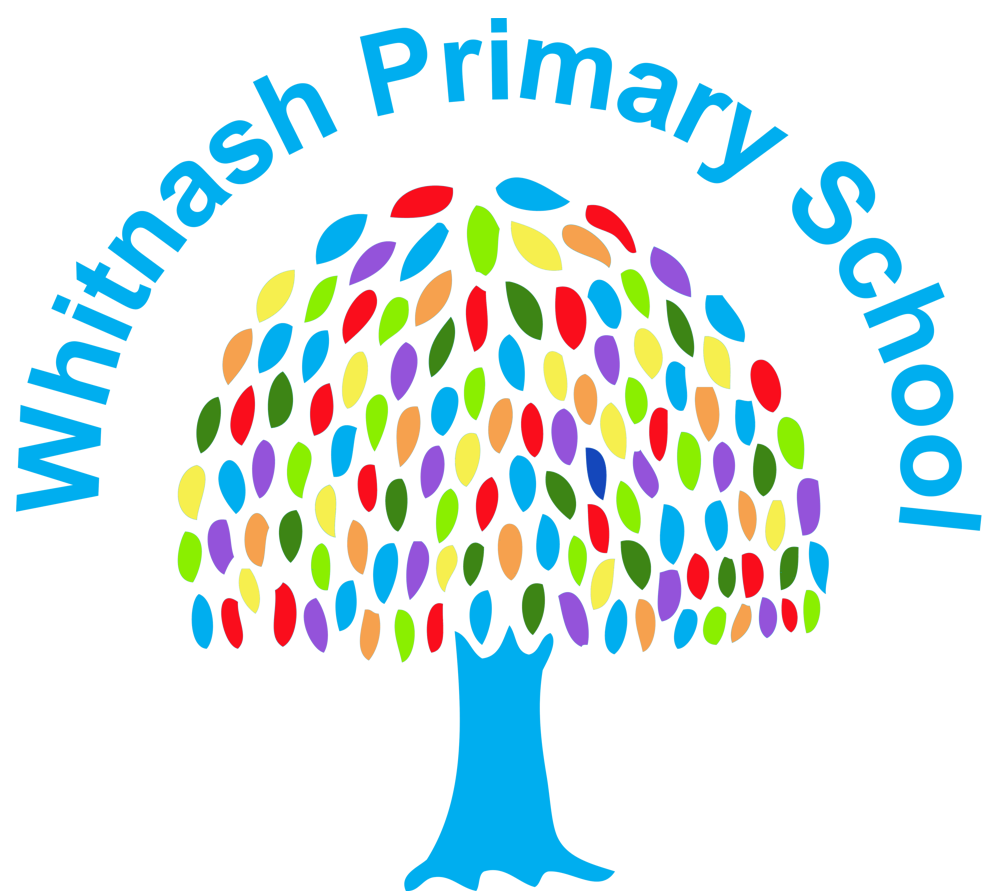The Thrive Approach
The Thrive Approach
What is Thrive?
Thrive supports children with their
emotional health, well being and social skills, all of which are needed to enable
learning to take place.
Children cannot always put their needs into words, but the way children behave can tell us a lot about how they are feeling.
For some children there may be an obvious reason why they need extra support.
This might be due to bereavement,
family break down or an identified
medical condition such as ADHD.
For others, there may not be any obvious trigger as to why they are finding some aspects of school and/or home life difficult.
Thrive supports children with their emotional health, well being and social skills,
all of which are needed to enable learning to take place.
Children cannot always put their needs into words,
but the way children behave can tell us a lot about how they are feeling.
For some children there may be an obvious reason why they need extra support.
This might be due to bereavement, family break down or an identified medical condition such as ADHD.
For others, there may not be any obvious trigger as to why they are finding
some aspects of school and/or home life difficult.
Thrive supports children with their emotional health, well being and social skills, all of which are needed to enable learning to take place.
Children cannot always put their needs into words, but the way children behave can tell us a lot about how they are feeling.
For some children there may be an obvious reason why they need extra support.
This might be due to bereavement, family break down or an identified medical condition such as ADHD.
For others, there may not be any obvious trigger as to why they are finding some aspects of school and/or home life difficult.

The Thrive Approach draws on the
latest research from current neuroscience, recent attachment research,
current studies of effective learning and current models of child development,
in order to help us to understand the needs being signalled by children's behaviour.
Working with parents and class teachers,
our Thrive practitioners carry out assessments of identified children's social,
emotional and behavioural needs
which help us to build an Action Plan
of targeted strategies and activities
to help children re-engage
with learning and life.
The Thrive Approach draws on the latest research from current neuroscience, recent attachment research,
current studies of effective learning and current models of child development,
in order to help us to understand the needs being signalled by children's behaviour.
Working with parents and class teachers, our Thrive practitioners
carry out assessments of identified children's social,
emotional and behavioural needs which help us to build an Action Plan of targeted strategies
and activities to help children re-engage with learning and life.
The Thrive Approach draws on the latest research from current neuroscience, recent attachment research,
current studies of effective learning and current models of child development,
in order to help us to understand the needs being signalled by children's behaviour.
Working with parents and class teachers, our Thrive practitioners carry out assessments of identified children's social,
emotional and behavioural needs which help us to build an Action Plan of targeted strategies
and activities to help children re-engage with learning and life.
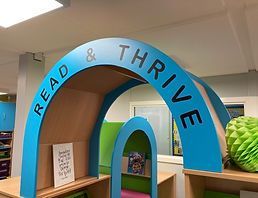

The Thrive approach is based on growing evidence that the brain develops through personal and social interaction.
The relationships that we have with significant adults is fundamental
to who we grow up to be.
Our brain is built through trillions of brain-cell connections made by sight, sound, smell, touch and movement.
Positive experiences enhance brain connections, and sustained negative experiences can restrict them.
Through simple, repeated activities over time, within a safe and caring environment,
Thrive aims to compensate for interruptions
in emotional development,
when they affect a child's ability
to enjoy life and learn.
The Thrive approach is based on growing evidence that the brain develops
through personal and social interaction.
The relationships that we have with significant adults is fundamental to who we grow up to be.
Our brain is built through trillions of brain-cell connections made by
sight, sound, smell, touch and movement.
Positive experiences enhance brain connections, and sustained negative experiences can restrict them.
Through simple, repeated activities over time, within a safe and caring environment,
Thrive aims to compensate for interruptions in emotional development,
when they affect a child's ability to enjoy life and learn.
The Thrive approach is based on growing evidence that the brain develops through personal and social interaction.
The relationships that we have with significant adults is fundamental to who we grow up to be.
Our brain is built through trillions of brain-cell connections made by sight, sound, smell, touch and movement.
Positive experiences enhance brain connections, and sustained negative experiences can restrict them.
Through simple, repeated activities over time, within a safe and caring environment, Thrive aims to compensate for interruptions
in emotional development, when they affect a child's ability to enjoy life and learn.
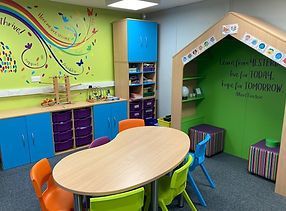

A Thrive assessment helps us to identify emotional developmental needs
as early as possible,
in order to support and meet those needs
on an individual basis.
As well as offering new ways of dealing
with challenging behaviour, Thrive also offers both teaching staff and parents useful approaches to working
with and helping any child
who is experiencing emotional upheaval, whether short or long term.
This is not a quick-fix; it takes time
and commitment to see results.
However, from research it is clear that early intervention to support children's needs
is the most effective approach
to preventing issues becoming
more problematic in later life.
A Thrive assessment helps us to identify emotional developmental needs as early as possible,
in order to support and meet those needs on an individual basis.
As well as offering new ways of dealing with challenging behaviour,
Thrive also offers both teaching staff and parents useful approaches
to working with and helping any child who is experiencing emotional upheaval,
whether short or long term.
This is not a quick-fix; it takes time and commitment to see results.
However, from research it is clear that early intervention to support children's needs
is the most effective approach to preventing issues becoming more problematic in later life.
A Thrive assessment helps us to identify emotional developmental needs as early as possible,
in order to support and meet those needs on an individual basis.
As well as offering new ways of dealing with challenging behaviour, Thrive also offers both teaching staff and parents useful approaches to working with and helping any child who is experiencing emotional upheaval, whether short or long term.
This is not a quick-fix; it takes time and commitment to see results.
However, from research it is clear that early intervention to support children's needs is the most effective approach
to preventing issues becoming more problematic in later life.
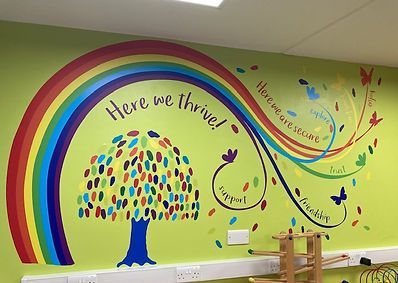

A Thrive Action Plan is a plan of activities tailored to support a child's identified
social and emotional learning targets.
The activities are one-to-one and
small group play and arts-based activities designed to help the child feel better
about themselves;
become more resilient and resourceful;
form trusting, rewarding relationships;
be compassionate and empathetic;
and/or be able
to overcome difficulties and setbacks.
Activities might include playing in the sand,
cooking, painting, model making,
exploring difficult situations
through role-play
or comic strips, playing strategy games
or projects focusing
on the child's own interests.
Action Plans are shared with parents who
are encouraged to do some of the activities
at home with their child.
Action Plans are reviewed regularly to
monitor the progress children have made.
A Thrive Action Plan is a plan of activities tailored to support a child's
identified social and emotional learning targets.
The activities are one-to-one and small group play and arts-based activities
designed to help the child feel better about themselves; become more resilient and resourceful;
form trusting, rewarding relationships; be compassionate and empathetic;
and/or be able to overcome difficulties and setbacks.
Activities might include playing in the sand, cooking, painting, model making,
exploring difficult situations through role-play or comic strips,
playing strategy games or projects focusing on the child's own interests.
Action Plans are shared with parents who are encouraged to do some of the activities
at home with their child.
Action Plans are reviewed regularly to monitor the progress children have made.
A Thrive Action Plan is a plan of activities tailored to support a child's identified social and emotional learning targets.
The activities are one-to-one and small group play and arts-based activities designed to help the child feel better about themselves; become more resilient and resourceful; form trusting, rewarding relationships; be compassionate and empathetic;
and/or be able to overcome difficulties and setbacks.
Activities might
include playing in the sand, cooking, painting, model making, exploring difficult situations through role-play
or comic strips, playing strategy games or projects focusing on the child's own interests.
Action Plans are shared with parents who are encouraged to do some of the activities at home with their child.
Action Plans are reviewed regularly to monitor the progress children have made.
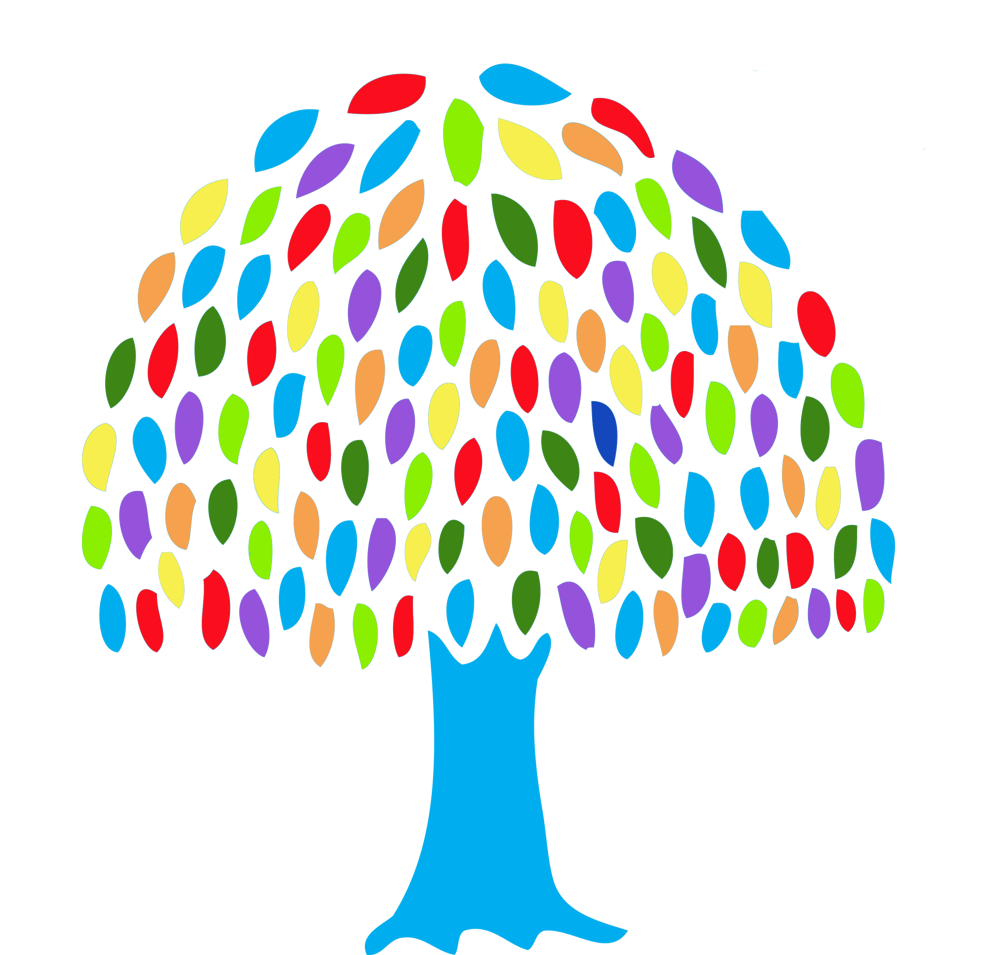
If you would like further information on
The Thrive Approach, please go to:
If you would like further information on The Thrive Approach, please go to:
Please be aware this is NOT a secure website.
As a school we are using Thrive to support children with their emotional health,
well being and social skills,
all of which are needed for
learning to take place.
The Thrive approach begins with a
whole class, computerised screening,
where teachers answer a series of questions about each child in the class.
The computer programme then identifies any children who would benefit from a more detailed assessment,
which in turn suggests ideas,
activities and strategies
to support the individual child.
We believe that this approach can be of
huge benefit to all our children
and so on entry to school we are asking all parents and carers for permission to carry out a Thrive Screening on their child.
We will of course let you know of any concerns revealed by the screening
and you will be fully consulted and involved
in any follow-up activities.
Sometimes it may be useful to share the results with other agencies, for example our Educational Psychologist or Behaviour Advisor, so we ask your permission
for this too.
We have two trained members of staff
to support with the delivery of this approach across our schools.
However all staff have received training
to support with the delivery of the
Thrive Programme.
As a school we are using Thrive to support children with their emotional health,
well being and social skills, all of which are needed for learning to take place.
The Thrive approach begins with a whole class, computerised screening,
where teachers answer a series of questions about each child in the class.
The computer programme then identifies any children who would benefit
from a more detailed assessment, which in turn suggests ideas,
activities and strategies to support the individual child.
We believe that this approach can be of huge benefit to all our children
and so on entry to school we are asking all parents and carers for permission
to carry out a Thrive Screening on their child.
We will of course let you know of any concerns revealed by the screening
and you will be fully consulted and involved in any follow-up activities.
Sometimes it may be useful to share the results with other agencies,
for example our Educational Psychologist or Behaviour Advisor,
so we ask your permission for this too.
We have two trained members of staff to support with the delivery of this approach across our schools.
However all staff have received training to support with the delivery of the Thrive Programme.
As a school we are using Thrive to support children with their emotional health, well being and social skills,
all of which are needed for learning to take place.
The Thrive approach begins with a whole class, computerised screening,
where teachers answer a series of questions about each child in the class.
The computer programme then identifies any children who would benefit from a more detailed assessment,
which in turn suggests ideas, activities and strategies to support the individual child.
We believe that this approach can be of huge benefit to all our children
and so on entry to school we are asking all parents and carers for permission to carry out a Thrive Screening on their child.
We will of course let you know of any concerns revealed by the screening
and you will be fully consulted and involved in any follow-up activities.
Sometimes it may be useful to share the results with other agencies, for example our Educational Psychologist or Behaviour Advisor,
so we ask your permission for this too.
We have two trained members of staff to support with the delivery of this approach across our schools.
However all staff have received training to support with the delivery of the Thrive Programme.

Click blue buttons for more information.
Page last updated 110825

